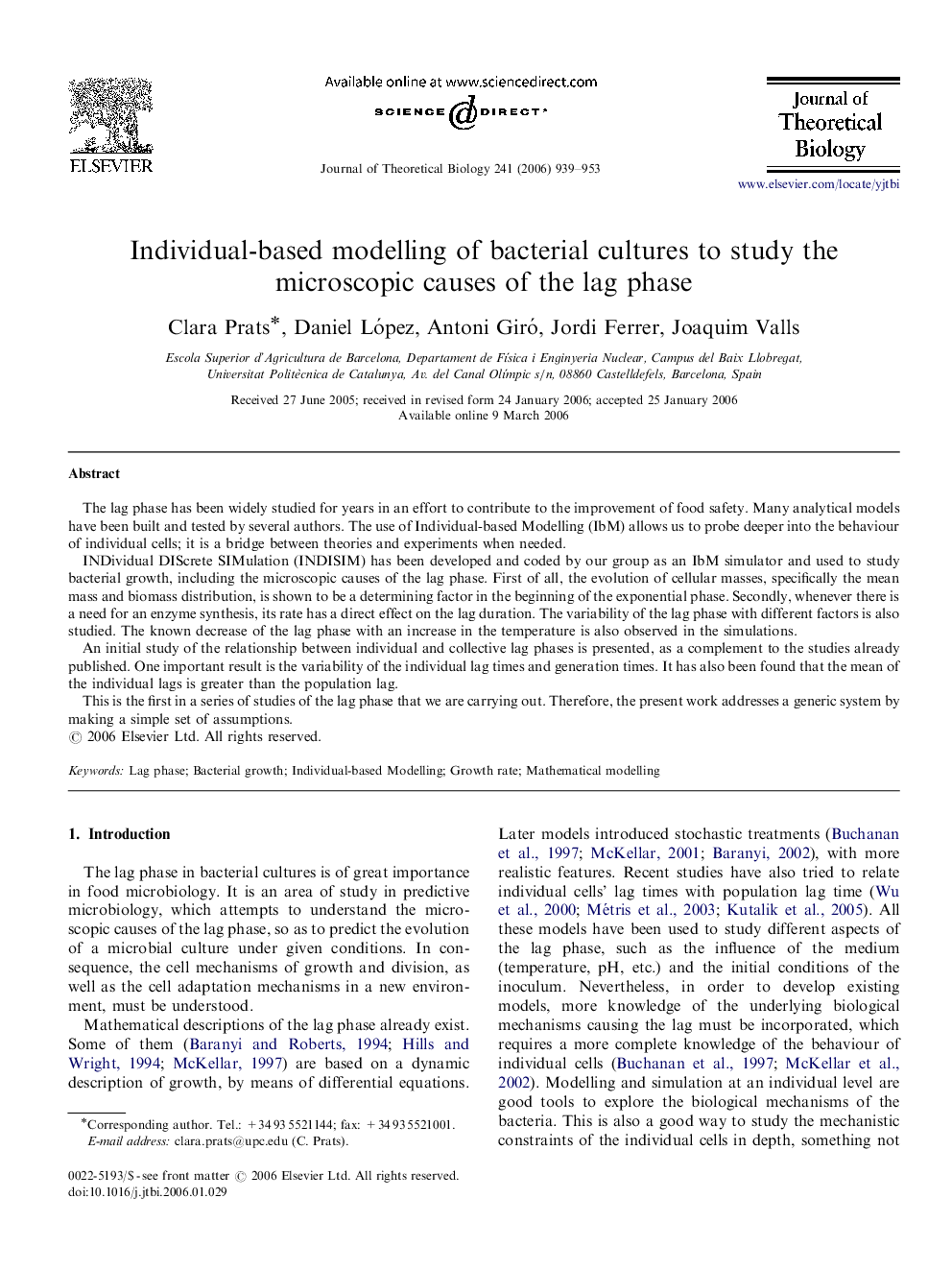| Article ID | Journal | Published Year | Pages | File Type |
|---|---|---|---|---|
| 4499465 | Journal of Theoretical Biology | 2006 | 15 Pages |
The lag phase has been widely studied for years in an effort to contribute to the improvement of food safety. Many analytical models have been built and tested by several authors. The use of Individual-based Modelling (IbM) allows us to probe deeper into the behaviour of individual cells; it is a bridge between theories and experiments when needed.INDividual DIScrete SIMulation (INDISIM) has been developed and coded by our group as an IbM simulator and used to study bacterial growth, including the microscopic causes of the lag phase. First of all, the evolution of cellular masses, specifically the mean mass and biomass distribution, is shown to be a determining factor in the beginning of the exponential phase. Secondly, whenever there is a need for an enzyme synthesis, its rate has a direct effect on the lag duration. The variability of the lag phase with different factors is also studied. The known decrease of the lag phase with an increase in the temperature is also observed in the simulations.An initial study of the relationship between individual and collective lag phases is presented, as a complement to the studies already published. One important result is the variability of the individual lag times and generation times. It has also been found that the mean of the individual lags is greater than the population lag.This is the first in a series of studies of the lag phase that we are carrying out. Therefore, the present work addresses a generic system by making a simple set of assumptions.
